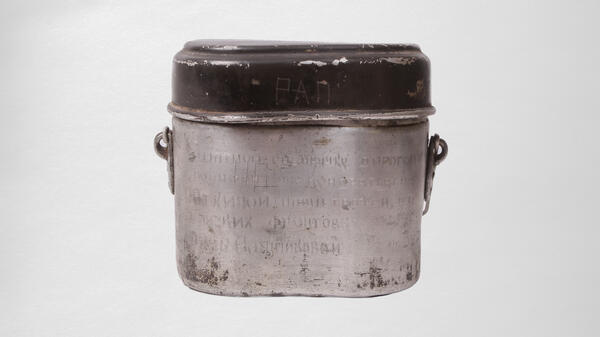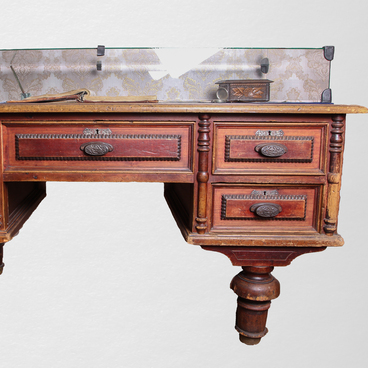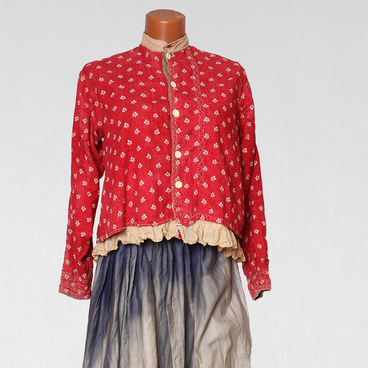The soldier’s bowler pot, displayed at the exhibition, belonged to Anna Yutkina — the Hero of Socialist Labor and the laureate of the State Prize. She was a brigade leader of the collective farm “Red Perekop” [kolkhoz “Krasny Perekop”] in the Mariinsk district. During the Great Patriotic War, potatoes were cultivated and harvested in the collective farm which was founded with the participation of Yutkina.
Yutkina brought the bowler pot from the front. She carefully kept it since 1943, and then took it to the museum.
“For me and my friends, ” said Yutkina, “1942 was the most notable year. Our brigade, that collected the greatest potato harvest, became the laureate of the State Prize. At the end of 1942, I went to Novosibirsk to the session of the regional Council of Workers” Deputies. After that, I was told: “Get ready — you are going to bring gifts to the front…”
Getting back to home, Yutkina and collective farmers started to prepare edible gifts for the front-line soldiers. They worked hard on pelmeni (Russian dumplings). In the end, residents of several districts of the region prepared around 49 wagons of supplies.
At the beginning of 1943, the Siberian echelon took its way to the West. Yutkina was ordered to accompany it and given wagon keys. In Moscow and Kalinin, wagons with gifts were almost cut off and the brigade leader was told that it would be dangerous to go further to the front line during the hostilities. But Yutkina was uncompromising:
Yutkina brought the bowler pot from the front. She carefully kept it since 1943, and then took it to the museum.
“For me and my friends, ” said Yutkina, “1942 was the most notable year. Our brigade, that collected the greatest potato harvest, became the laureate of the State Prize. At the end of 1942, I went to Novosibirsk to the session of the regional Council of Workers” Deputies. After that, I was told: “Get ready — you are going to bring gifts to the front…”
Getting back to home, Yutkina and collective farmers started to prepare edible gifts for the front-line soldiers. They worked hard on pelmeni (Russian dumplings). In the end, residents of several districts of the region prepared around 49 wagons of supplies.
At the beginning of 1943, the Siberian echelon took its way to the West. Yutkina was ordered to accompany it and given wagon keys. In Moscow and Kalinin, wagons with gifts were almost cut off and the brigade leader was told that it would be dangerous to go further to the front line during the hostilities. But Yutkina was uncompromising:



